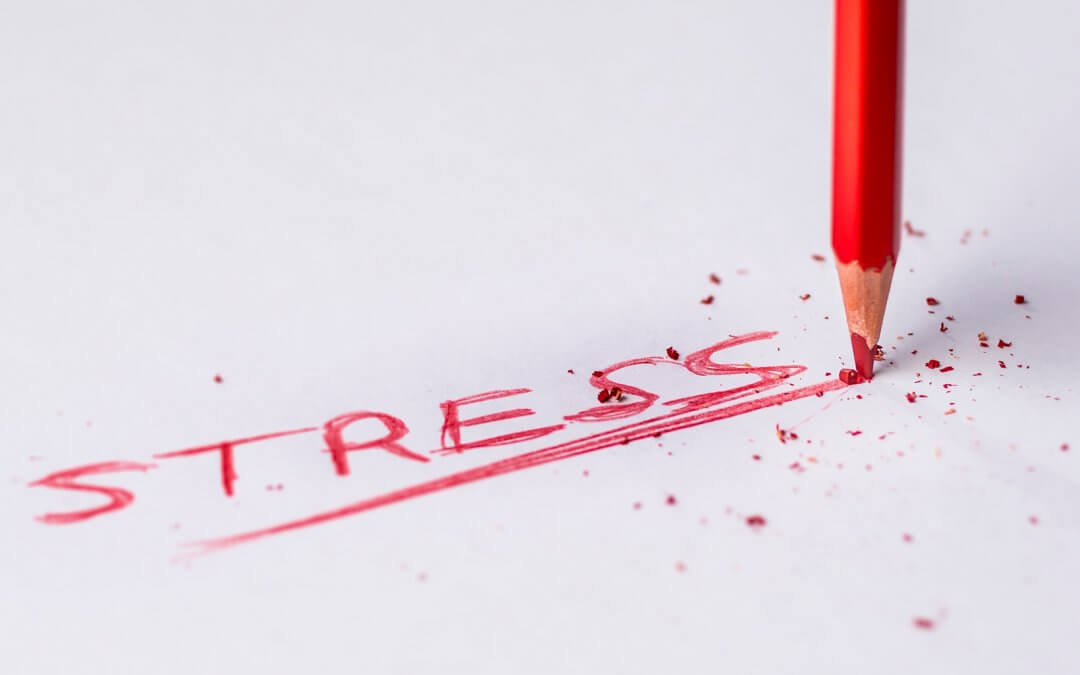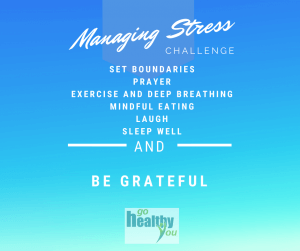Stress and Our Lifestyle
If the constant pressures of relationships, social media, finances, work, school and health are stressing you out, then you need a challenge to manage your stress. Or how about the dreaded social media that always keeps us logged on—even during our down time!
Professor M. Tarafdar of Lancaster Univ. Management School states, “While it might seem counter-intuitive, social media users are continuing to use the same platforms that are causing them stress rather than switching off from them, creating a blurring between the stress caused and compulsive use.” [1]
We need to manage our stress because we just never turn off!
Stress and Our Body
At least 43% of all U.S. adults suffer adverse health effects due to chronic stress [2]
When you face stress, your body releases two critical hormones necessary for energy and focus. When in balance, these hormones (adrenaline and cortisol) prepare the body to fight with oxygen filled muscles, rapid heart rate and increased breaths. However, if you stay in a perpetual cycle of never-ending stress, these hormones stay out of balance. Chronic stress coupled with hormone imbalance can put you at risk for these common symptoms:
- poor sleep
- digestive issues
- brain fog
- depression and anxiety
- irritability
- lowered immunity
- increased infections
- inflammation
- change of appetite
- mindless eating
- blood sugar spikes
- nervous habits
- lack of productivity
- fatigue
Hope for Our Health
No one wants to survive every day with chronic stress! It weakens the ability to sense key alert signals coming from the body. If you ignore these stress-related signals (or symptoms) for too long, unhealthy changes begin happening. Your body tries to adjust to these changes as its new-normal, until suddenly a major stress-related health crisis develops.
But here’s the good news—it is possible to bounce back and recover with minimal damage—if you develop a plan to manage your stress!
Here’s a Plan
Stress-triggers may hang around for awhile, but you may be surprised to learn that you can manage stress if you develop a plan. The first step in setting any plan is to identify your personal stress-triggers. Next, learn of simple lifestyle techniques to practice when those triggers arise. Finally, commit to follow a stress-reducing plan before those triggers take over your body—emotionally, mentally and physically.
Seven Stress-Reducing Techniques
-
Endless demands causing you stress? Make a priority to control your tasks by setting boundaries around your schedule, otherwise those tasks will control you.
-
Scientific studies show that it can be difficult to cope with your stress if you have with a burdened, negative outlook on life. Prayer, meditation and mindfulness [3] helps shift that negative outlook to a new one of hope.
-
Regular exercise and deep breathing boosts the “feel-good” endorphins in our brain getting us ready to handle stress [4] with improved strength, happier mood and decreased tension.
-
It’s a fact that during stressful times our appetite increases, and so does the desire for processed, high-fat, sugary “comfort” foods. When we mindlessly stress-eat “comfort” foods, a “hunger hormone” is activated and it numbs our emotions.[5] A mindful eating plan will help you avoid last minute comfort food temptations, replace nutrient deficiencies, and balance blood sugar fluctuations.
-
Laughter—truly IS the best medicine to help us forget our troubles. A momentary stress-free break spent laughing will quickly improve a mood and reduce harmful stress hormones.
-
The very activity essential for healing – sleep – causes stress to the body when it’s lacking, affecting our mood, immune system and ability to think clearly. Practicing simple sleep techniques can improve concentration, reduce anxiety, brain fog and and stress hormones,
-
An amazing thing happens to our mental well-being with a heart of gratitude. Our emotional state changes, our thoughts and attitude turn positive, just by focusing on thoughts to be thankful for.
Stress-reducing Goals
Stress hits everyone! It affects our health, weight, sleep patterns and mood, causes brain strain and blocks our willpower to maintain a healthy diet. If you are feeling the impacts of stress on your body, then it’s time to think about setting stress-reducing goals!
What are your goals?
- Feel better and be more healthy
- Control the to-do-list
- Enjoy more sleep
- Avoid stress eating
- Have a more positive attitude on life
Whatever goal motivates you to begin a plan, just know that it can be done with stress-reducing techniques. We’re so confident of this fact that we’ve created a fun and easy 7-day challenge to manage stress! Won’t you join us! Over the course of seven days, a new stress-reducing challenge will be sent to your email inbox. Each challenge will unlock great videos and simple, yet practical stress-reducing tips to stay healthy—emotionally, mentally and physically.
Missed this month’s challenge? No worries, send a quick email to Go Healthy You requesting the start date of our next challenge to manage your stress.
Go Healthy You!
- [1] https://www.addictioncenter.com/news/2019/09/social-media-stress/
- [2] https://psychcentral.com/lib/how-does-stress-affect-us/
- [3] https://psychcentral.com/blog/spirituality-and-prayer-relieve-stress/
- [4] https://www.medicalnewstoday.com/articles/324417#benefits
- [5] https://www.health.harvard.edu/staying-healthy/why-stress-causes-people-to-overeat


